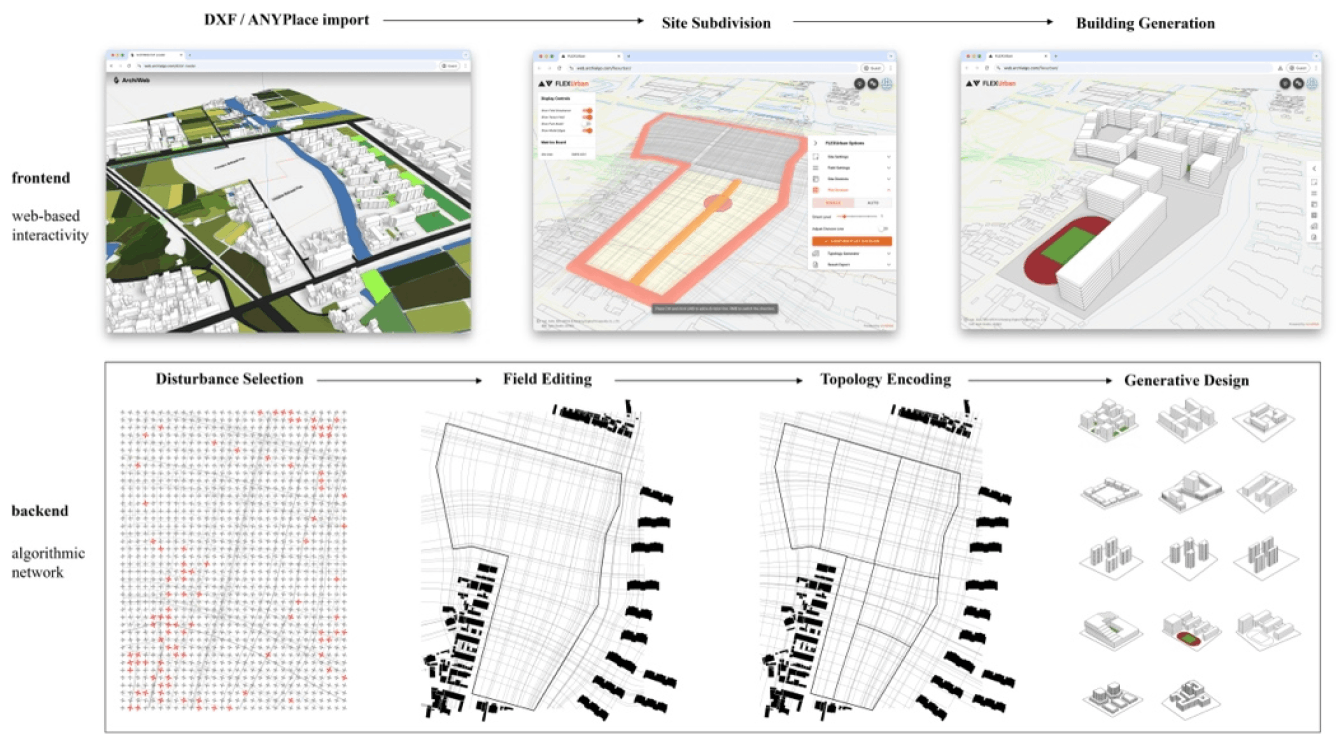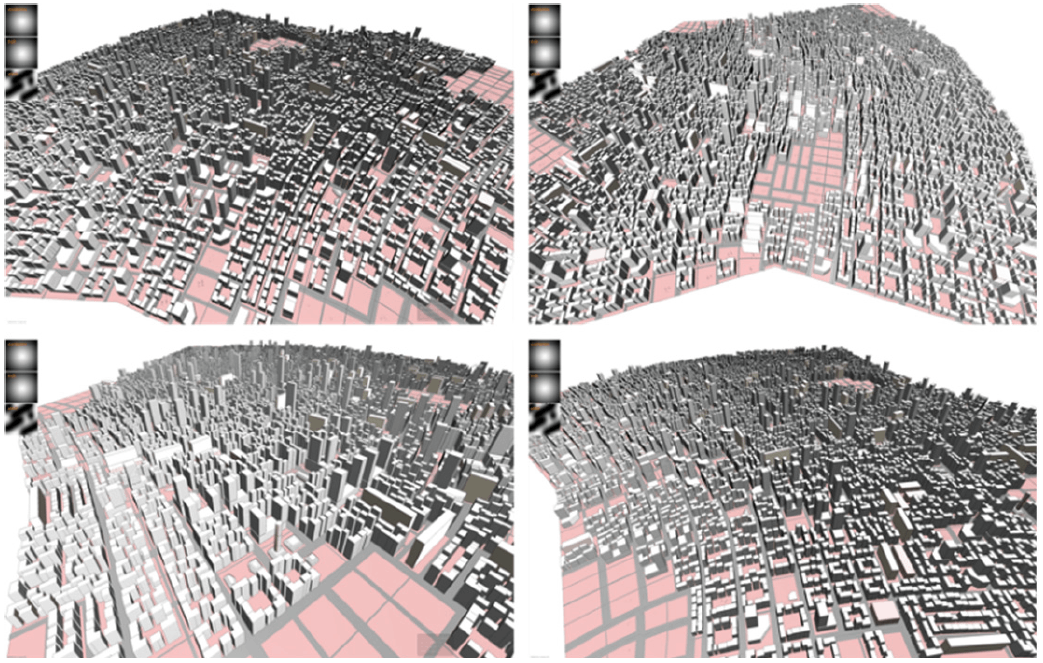Topological Encoding for Street Network Generation: Adapting to tensor field and optimization for urban design
Abstract
Capturing the principles of existing street generation is crucial for guiding urban renewal and development. This study introduces a novel topological encoding method for street networks, which is designed to adapt to diverse contextual conditions. We propose a flexible and adaptive street networ k generation method using tensor fields, which allows user to generate the street network step by step. This method utilizes the Binary Space Partitioning (BSP) tree data structure to create basic street network prototypes within tensor fields, offering straightforward encoding and decoding processes that make it ideal for data exchange in web applications. Building on this framework, the research presents FLEXUrban, an innovative webbased interactive application. FLEXUrban establishes a comprehensive design workflow, encompassing site data import, streamline field editing, site subdivision, and building generation. By integrating these stages, the application simplifies the urban design process, enabling urban planners and architects to generate contextually adaptive and efficient urban designs. This approach fosters smarter and sustainable development practices, ensuring adaptability to the dynamic challenges of modern urban environments.
Keywords
Topological Encoding, Street Networks, Tensor Fields, Optimization, Generative Design

